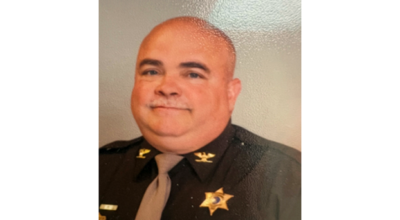Production progressing on Rainbow Farm incident film
Published 8:00 am Friday, June 23, 2017
More than 15 years since the police standoff that left two Cass County marijuana activists dead, the harrowing story of what occurred on Labor Weekend in September 2001 at the 34-acre Rainbow Farm in Newburg Township continues to resonate today — including with people living on the other side of the country.
Earlier this year, several Hollywood production firms, including Anonymous Content, Element Pictures and Film4, optioned the film rights to Dean Kuipers’ “Burning Rainbow Farm,” a 2006 non-fiction book recounting the deadly Cass County incident. Lenny Abrahamson, director of the Academy Award winning film “Room,” is set to helm the yet titled movie.
This is the second time that Tinseltown has considered adapting Kuipers’ book, the Los Angeles author said. Producers with Anonymous Content acquired the film rights of the story in 2007, and had even hired several screenwriters to create a script before the project fizzled out, Kuipers said.
However, with the debate over legalization of marijuana as hot as ever, as well as the boiling point political discourse has reached since the election of President Donald Trump, Kuipers said now is the perfect time for Rainbow Farm story to make it to silver screen, he said.
“Lenny is a really good director and he is excited about the story,” he said. “I’m excited to see what happens.”
Kuipers, a freelance journalist who grew up only miles away from Cass County in Schoolcraft, began chasing the Rainbow Farm story immediately following the aftermath of the standoff, which led to two men, Tom Crosslin and his partner, Rolland “Rollie” Rohm, being shot to death by FBI and state police.
Crosslin and Rohm opened Rainbow Farm in 1993. The couple used the campground as a platform for their efforts to legalize marijuana, hosting annual festivals that drew thousands to Cass County and attracted entertainers such as Tommy Chong.
Naturally, Crosslin’s and Rohm’s pro-marijuana stance captured the interest of local law enforcement agencies as well, which uncovered that the campground was a frequent site for drug use and deals — though the couple disdained pot dealing. Police also blamed the camp for the 2001 death of an Eau Claire teenager, who crashed into a school bus after attending one of Rainbow Farm’s festivals.
Conflicts between the camp owners and police reached a crescendo after Crosslin and Rohm were arrested in May 2001 for growing marijuana in their home, as well as for illegally owning several firearms. As a result of their arrest, the two lost custody of Rohm’s 11-year-old son, and faced police seizure of their property.
After failing to appear for their scheduled court date on Friday, Aug. 31, the couple holed themselves up on the farm and burned down the property’s 10 buildings, as police surrounded the property. Local authorities called in the FBI after Crosslin fired at a news helicopter.
The ensuing standoff ended after four days with the deaths of the property owners, who police snipers shot and killed within 24 hours of each other, on Sept. 3 and 4.
Kuipers first heard about the incident after receiving a copy of the Kalamazoo Gazette in the mail from his home in California, which had the story about the incident on the front page. The thing that stuck out the most to him was the headline of the story, a quote that read “it just doesn’t make sense.”
Although national coverage of the standoff quickly faded — the 9/11 terror attacks occurred just days later — Kuipers remained fascinated with the case. He began contacting and interviewing witnesses, police and others in the county in an attempt to get to the bottom of just what happened.
“The more calls I made, the more that [Gazette] headline resonated with me,” Kuipers said. “It just didn’t make sense. It was one of those stories where every call I made left me with more questions than answers.”
Kuipers’ investigation took four years to wrap up, and led him to publish “Burning Rainbow Farm.”
Although the case never captured national attention for long, the incident remains burned in the memory of many, especially marijuana advocates, Kuipers said.
While there are many compelling facets to Crosslin’s and Rohm’s story — their pro-marijuana stance in a time before widespread legalization, the fact they were openly gay when many same-sex couples chose to conceal their relationships from the public —for Kuipers, the largest lesson he takes away from the Rainbow Farm incident is that, when the middle ground between two sides breaks down, violence inevitably ensues.
“There should have been a way for both sides to talk it out, but they never came up with one before things became violent,” he said.
With politically motivated violence on the upswing in recent months, combating tribalism and the idea of seeing people on the other side of a given issue as “the enemy” is more important than ever, Kuipers said.
The renewed interest from Hollywood in the Rainbow Farm story will hopefully expose a new generation to this lesson, and shine the spotlight on what went wrong on the Cass County farm 16 years ago, Kuipers said.
“More than vindicating what I had done, I think it shows that people care about these issues,” he said. “People still care that something went wrong there. That is something that is really reassuring for me.”





